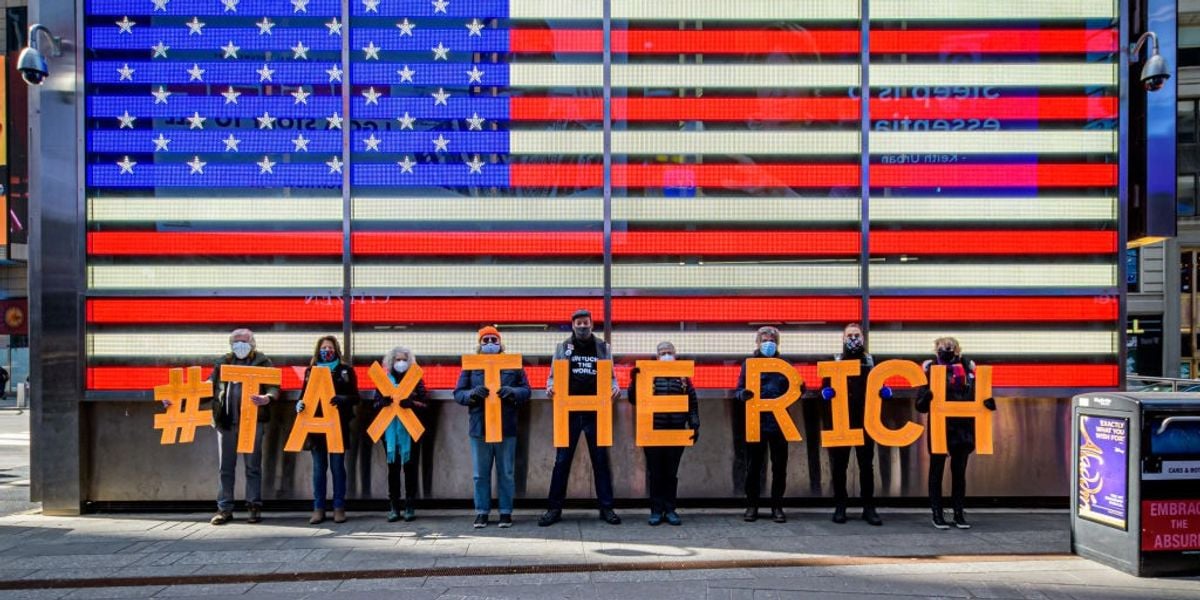“Almost nobody says we should have the richest pay the least. And yet when we look around the country, the vast majority of states have tax systems that do just that.”
Nearly every state and local tax system in the U.S. is fueling the nation’s inequality crisis by forcing lower- and middle-class families to contribute a larger share of their incomes than their rich counterparts, according to a new study published Tuesday.
Titled Who Pays?, the analysis by the Institute on Taxation and Economic Policy (ITEP) examines in detail the tax systems of all 50 U.S. states, including the rates paid by different income segments.
In 41 states, ITEP found, the richest 1% are taxed at a lower rate than any other income group. Forty-six states tax the top 1% at a lower rate than middle-income families.



Yup and some of it is just absolutely insidious too. Take for example my state’s 529 plan, it actively punishes the poor and working class. They charge a 4% fee/tax that decreases as you put more in at one time so a working stiff putting in part of their paycheck every month will get 4% stolen from them while the rich guy that can afford to put in 10K at once pays not a damn thing. To me that’s completely and utterly screwed up and punishing those who need help the most.
It’s absolutely sick how this “Christian Nation” actively goes and hurts the poor.
It’s because the hyper-Christians in Government think the poor are poor because of their own failings. They are sinful and not favored by God. People who are rich got that way by being in God’s favor, so why shouldn’t we reward that?
It’s called the Prosperity Gospel. It’s uniquely American. And it’s frightening.
https://www.vox.com/identities/2017/9/1/15951874/prosperity-gospel-explained-why-joel-osteen-believes-prayer-can-make-you-rich-trump
I’m not even Christian, but I’m pretty sure that’s the exact opposite of what Christ was supposed to be teaching.
The only time that anyone wrote about the guy getting even a little irritated, he found moneychangers at the temple, and was so pissed he took a few hours to braid his own whip, then went back and started flipping tables and whipping moneychangers…
Sounds like you may be on to something.
I wish things were this small scale still. You bet your ass there would be lines miles long to whip the fucking blackrock assholes and anyone in the 3 letter positions of Bank of America would already be dead.
You’re right, of course. It’s sad how many times I have to dig this gem out. It only gets more relevant over time.
https://www.beliefnet.com/news/2003/09/the-gospel-of-supply-side-jesus.aspx
Not Republican Jesus!
Prosperity gospel is like the most grotesque, final boss form, of The Just World Fallacy. The fact that it doesn’t even have a quiet part, and just comes out swinging with full-throated equivocation of money and power to god’s love, is disgusting and truly terrifying. It’s like peering through a time vortex straight into the worst parts of dark age Europe. Thanks, I hate it.